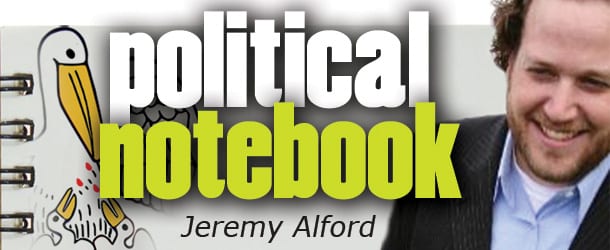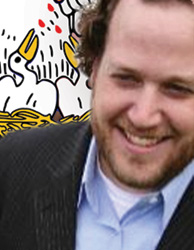By Jeremy Alford and Mitch Rabalais
By the spring of 2019, voters residing in 44 percent of Louisiana’s parishes will have participated in a special legislative election. And that statistic could swell before the ongoing term of the Legislature concludes in early January, 2020.
Special elections have either been held or called in 28 of Louisiana’s 64 parishes for the purpose of replacing 24 legislators. All but two of those elections originated in the House, which now has a 21 percent turnover rate — the highest in recent memory.
Ten legislative sessions over the past three years; more consecutive days spent in the Capitol since 1812; and intense budget and tax votes have forced many legislators to look for exits.
“It feels like I’m aging in dog years,” said former Rep. Rob Shadoin, a Ruston Republican, before he resigned this summer. “Every year I’m down here feels like seven.”
If the unprecedented turnover wasn’t enough, another 47 legislators are slated to move on after this term due to term limits. In the Senate, term limits will force a 41 percent turnover next term — or 16 of 39 senators. In the House, the number is closer to 29 percent, or 31 out of 105 reps.
Book Offers Another Look At Duke
Three decades or so ago, many thought David Duke was forever banished to obscurity, and that his political career was a closed book. Duke, however, re-emerged on the political stage for his second act in the late 1990s and a third act in the 2000s.
Duke’s unlikely comeback attempt has been chronicled in Tyler Bridges’ book The Rise and Fall of David Duke. Bridges, who covered Duke’s heyday in Louisiana, has added new chapters to his previously released 1994 biography.
The first part of the book is the same as in the original edition: spanning Duke’s early life, his radical activities as an LSU student, his leadership role in the Ku Klux Klan, his tenure in the Louisiana Legislature and his unsuccessful but highly visible runs for the U.S. Senate and governor in the early 1990s.
The book provides fascinating insight into Duke’s political brand and the slick tactics that took a white supremacist mainstream — and temporarily made him a formidable force in the state.
Part two of Bridges’ updated effort — the new material — opens with the 1995 race for governor. It was Duke’s second try for the office and the last statewide campaign in which he would have a significant impact. He eventually got out of that contest before qualifying — cutting a backroom deal with former Gov. Mike Foster: an event Bridges aptly describes in great detail with sharp analysis.
In a chapter titled, “Two More Races, Two More Defeats,” we learn about Duke’s exit from political relevancy in Louisiana, as embarrassing finishes in races for the U.S. Senate in 1996 and the U.S. House in 1999 all but ended his stretch as a major candidate.
Duke’s legal troubles predictably take up another chapter. The author dives deep into the fraud case that surrounded Duke’s nefarious fundraising activities, but also circles back to the politics behind the real-life protagonist. This chapter includes a fascinating breakdown of the period of Duke’s later life, when he abandoned his mainstream message of the 1990s and returned to articulating his more hardened anti-Semitic and racist views.
The reader then encounters Duke, a shriveled shell of the man he once was, bumbling around Europe, getting banned from various countries while trying to make a living off of selling books and photographs. It is in these passages that Bridges takes a moment to reveal a glimpse into what could be Duke’s humanity, or something akin to it.
MAGA diehards will want to flip right to the concluding pages, which recount how Duke became a hot issue during the 2016 campaign between Hillary Clinton and President Donald Trump. Duke’s own bid for the U.S. Senate that year, fueled by Trump mania, gets explored as well. But it becomes clear in the text that Duke’s late-in-life campaign was operating more on nostalgia than anything else.
Bridges’ Rise and Fall of David Duke is a sobering and poignant account of one of Louisiana’s darkest political actors. It’s a must-read for history buffs as well as political junkies who are interested in understanding who David Duke really was, and is — not to mention his impact on Louisiana.
GOP Conference Makes Its Return
The Bayou State will once again host the Southern Republican Leadership Conference in January, providing a gathering place for GOP figureheads from 14 states to promote candidacies, discuss policy agendas and hear speeches from conservative movers and shakers.
The SRLC has become a must-attend event for Louisiana Republicans, who heard from every major presidential candidate in the party, including future President Donald Trump, during the 2010 conference.
The two-day conference kicks off Jan. 18 at the Pontchartrain Center in Kenner and is meant to serve as a “jumpstart to the 2020 elections for president and the U.S. Senate,” according to SRLC president Roger Villere.
A new feature of the conference will be a program called “Campaign Ready” that will function as a political triage of sorts for party players. “We’re going to have a number of speakers, consultants, pollsters,” said Villere, “people that do TV and radio, people that run campaigns and even know about the psychology of politics … We’re trying to see whether you should be a candidate, or whether you should be working on staff.”
“So we’re going to train people who want to run campaigns, run for office or just want to volunteer on a high level with a campaign.”
SRLC executive director Phil Capitano said the conference is working to find volunteers as well. “It’s a big event, and there are a lot of moving parts to it,” Capitano said. “You’ve got a VIP room, where many of the speakers will be going before or after they speak. You’ve got a book signing room, or an autograph room, where those who have books will be signing their books and taking the opportunity to talk to people and take pictures. Security is another huge issue. We need good volunteers. They do have to pass a little bit of a background check. But if they do, we certainly can use them.”
Fiscal Initiatives On Tap
State lawmakers won’t return to Baton Rouge for another regular session until April 8, 2019. But many are already working on their policy agendas, which include ideas new and old.
You’ve probably heard about the prospects for a teacher pay raise bill next year. Gov. John Bel Edwards is backing the proposal — and like lawmakers, he faces re-election in the fall of 2019.
There have also been rumblings concerning a revised gas tax proposal. And there’s always the possibility that another budget battle will boil down to principles rather than pennies.
But what about those fiscal-related bills favored by House conservatives in years past? Will those policy ideas make appearances during the 2019 regular session as well? Probably so, according to House Speaker Taylor Barras, R-New Iberia.
“With the budget reforms, as we’ve talked about over the years, a spending cap and the work requirements and income verification on Medicaid, I think you’ll see a lot of that get repeated, as we continue to see that budget grow and the dependence on federal dollars grow,” said Barras. “So trying to get as much efficiency as we can built into the spending side to avoid having to do much more on the revenue side, I think you’ll see that combination continue to work through.”
Contacted for a second opinion, House Majority Leader Lance Harris of Alexandria took little time to weigh in on the matter. “I totally agree with that,” he said of the speaker’s forecast. “All of that.”
Political History: Slidell, Plaquemines And The Presidency
In the 1844 presidential election, Gov. James K. Polk of Tennessee faced off against U.S. Sen. Henry Clay of Kentucky. Polk, a Jacksonian Democrat, played up his rough and tumble image as an outsider from the frontier. Meanwhile, Clay, a Whig, made his case based off his decades of experience in Washington and his reputation as the country’s foremost political insider.
In New Orleans, then-Congressman John Slidell was working hard to ensure a Democratic victory in the Bayou State. According to The Political Apprenticeship of John Slidell by Joseph Tregle, the congressman was eager to move up the ladder in Washington, and was more than happy to help out Polk if it could further his ambitions.
With voting only a few weeks away, the national vote appeared pretty evenly split. Louisiana, a swing state, would have the power to tip the election to either candidate.
According to A Perfect War of Politics by John M. Sacher, the state’s geography was a big factor in the contest. Polk had a loyal following in North Louisiana and the Florida Parishes, while Clay had a solid base of support in South Louisiana and New Orleans.
Slidell knew that for Polk to win Louisiana and the presidency, he would have to carry a part of the southern portion of the state. His solution for the problem was simple.
On Election Day, the congressman chartered a riverboat in New Orleans and loaded hundreds of the city’s Irish immigrants on to the vessel. They then traveled downriver to Plaquemines Parish, where everybody disembarked and proudly cast their ballots for Polk.
According to Sacher, Plaquemines had only had 290 residents vote in the 1840 presidential election. However, four years later, Polk carried the parish by 990 votes — also winning the statewide vote in the process.
As for Congressman Slidell, the new president rewarded him with a plum diplomatic post in Mexico.
Competitive Insurance Race Likely
According to sources connected to his developing statewide bid, Temptan president Tim Temple of DeRidder will soon officially announce the formation of a campaign for insurance commissioner.
Incumbent Insurance Commissioner Jim Donelon has held the post for 12 years, and by all indications he will seek another term. In his last finance report filed in February, Donleon had $204,000 in his campaign kitty.
The likely candidate’s father was Aubrey T. Temple Jr., the founding chairman of the board of the Louisiana Workers’ Compensation Corp.
This campaign would be Temple’s first run for elected office. However, he does have some experience in state government, having worked as an aide to former U.S. Sen. Mary Landrieu during her tenure as state treasurer.
Statewide Candidates Share Fundraiser
After working for a few state senators in Louisiana and further building a political book of business in Florida with candidates there, consultant Terri Hutchinson has been hired as a fundraiser by both businessman Eddie Rispone and Attorney General Jeff Landry.
Rispone has announced his 2019 candidacy for governor, a race for which Landry is often listed as a potential contender. Based on historical campaign trends and nothing else, if both were to make the big race next year, it would be unlikely that two teams would share the same money-grabbers.
They Said It
“We don’t want to run against our constituents.” — Congressman Cedric Richmond, on the new process for selecting delegates to the Democratic National Convention, in Politico
“All I’m saying is that we need a little bit more of what we generate. And I don’t believe it’s pie in the sky.” — New Orleans Mayor LaToya Cantrell, on getting more state dollars, in The Advocate
“Around 2:15, I get a peanut butter and jelly sandwich.” — Gov. John Bel Edwards, on his lunch, on WVLA-TV
For more Louisiana political news, visit www.LaPolitics.com or follow Jeremy Alford on Twitter @LaPoliticsNow.














Comments are closed.